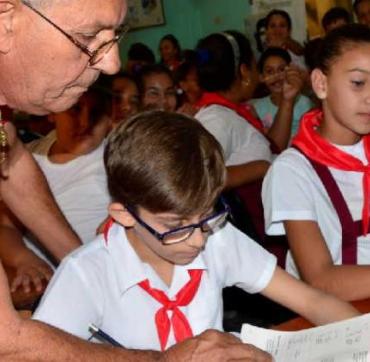Guterres Proposes Emergency Platform to Tackle Global Shocks
especiales

Currently, the global response to international shocks is often ad hoc, fragmented, and improvised.
On Thursday, United Nations Secretary Antonio Guterres proposed strengthening the international response to complex global shocks through an "Emergency Platform."
The global response to such shocks is often ad hoc, fragmented, and improvised. There is a need for a mechanism to tackle multidimensional threats with a multidimensional response, he said in his presentation of a policy brief for the Summit of the Future scheduled for 2024.
"Our global interconnectedness means that shocks that occur in one country or sector can quickly have cascading consequences elsewhere, often in unforeseen ways," Guterres said.
"Those shocks are coming at us with greater strength and frequency, with serious implications for peace and security, economic stability, and environmental sustainability," he added.
Some of these problems can have a disproportionate impact in some areas. Both the COVID-19 pandemic and the global cost-of-living crisis hit the poorest and most vulnerable hardest, throwing Sustainable Development Goals (SDG) progress and Agenda 2030 further off-track.
For the sake of a more formal, predictable, and structured approach, the Emergency Platform would leverage the United Nations' convening power and capacities in a timely and predictable way. It would identify and bring together actors at the appropriate level to respond.
It would be flexible and agile, responding to different types of shocks. Crucially, it would promote a global response based on solidarity and equity, and the key principle of leaving no one behind.
All people and countries hit by a shock must have access to the support they need, Guterres said, adding that accountability would be built into the Emergency Platform, in order to hold all parties to their concrete commitments.
While decisions would continue to lie with member states, the Emergency Platform would also include the private sector, civil society, and other non-state partners with an ability to contribute to the global response.
But Guterres clarified that the Emergency Platform would not be a standing entity or body. It would, instead, consist of a set of protocols around convening key actors in the event of complex, global shocks, and operationalizing their coordinated response.
odies, including the Security Council. Nor would it interfere with the mandate of specialized agencies or existing mechanisms. It would be a tool for the multilateral system to support intergovernmental decisions and complement existing mechanisms.
The United Nations is the only organization that can bring together all stakeholders in the event of complex global shocks, and has them work together to the best effect. It is time to take decisions that enable it to do so.
Another policy brief presented to UN members by Guterres concerns how to take the future into account in decision-making and deliver on responsibilities to generations yet to be born.
"Achieving the SDGs, upholding the rights and meeting the needs of people alive today are clearly preconditions for a better future. At the same time, we must make those decisions with an eye on the future, recognizing the rights and interests of people who are not yet born," he pointed out.
Most members of future generations will be born in countries that are currently low- and middle-income ones. They are likely to live in places that are already suffering the effects of poverty, hunger, the climate crisis, crippling debt, discrimination and inequality.














Add new comment